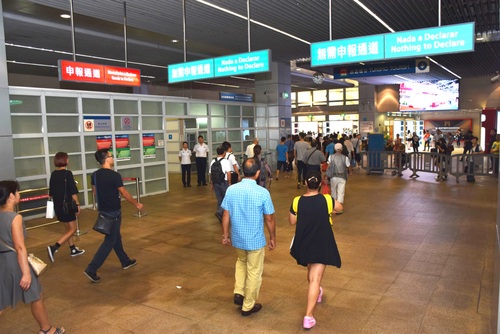 Arrival passengers should use the Red Channel for declaration
Arrival passengers should use the Red Channel for declaration
The purpose of the new measure is to prevent or combat money laundering and terrorist financing, in order to ensure the security and stability of Macao's economic system. The Legislative Council has deliberately voted and passed the LawNo. 6/2017《Control of Cross-Boundary Transport of Currency and Bearer Negotiable Instruments (CBNIs)》(the Law) and will take into effect on 1 November 2017.
Content of the Law was published on the No.24《Official Gazette of Macao SAR》on 12 June 2017. According to the Law regulation, arrival passengers bringing CBNIs equal to or exceeding MOP 120,000.00, for example Traveler's cheques, cheques, draft, payment orders, promissory note, etc, should use the Red Channel with the filled declaration form and declare to Customs Services proactively; departure passengers need to truthfully declare upon called by customs agent, or shall be liable to a fine of MOP 1,000 to MOP 500,000. The declaration range does not include gold and other precious metals and stones, also the transit travelers who have a layover in Macao SAR.
The implementation of the declaration measure is not intended to restrict, hinder or prohibit the withdrawal and entry of legal capital from and to Macao. Passengers should follow relevant regulation and make declaration after the Law taking effect.
The SA will soon launch a series of promotional and advertising activities, in order to allow all travelers and residents to get full access to information, ensuring the effective enforcement of the Law. For more information, please contact the Macao Customs Service hotline: 89894317.


